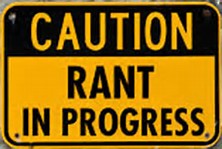I recently finished a bout of hiring and in my midway through frustration resolved to write a post about common cover letter and resume mistakes that drive me up a wall as a hiring manager. But there is something I felt I needed to address first: cover letters, as a concept, kind of suck.
In the theory, cover letters are a way to make your application stand out. They should be a way to draw a connection between your experience and the job for which you are applying. In reality, the only thing cover letters really do is judge your ability to write cover letters. If your parents are professionals and/or if you went to college you've probably received coaching or advice on how to apply to jobs. If not, well then not.
As I've said, as a frequent reviewer of cover letters I can easily get frustrated with their authors. The rules of writing them feel so basic to me (edit for grammar and spelling!) that I often wind up penalizing applicants who write bad ones but very, very rarely move an applicant forward based their cover letter alone. As an applicant myself I've often found cover letters to be a stumbling block, obsessing over creative ways to rephrase information that I feel should be obvious from my resume and googling synonyms for "oversaw" and "managed."
And please don't even start me on campaigns that refuse to divulge their candidate or district but still ask for cover letters in a job description.
For all these reasons many organizations in the progressive jobosphere have been moving away from cover letters in favor of short answer questions usually around 250 words each. These questions provide three distinct advantages:
1) Short answer questions cut out the superfluous window dressing that a cover letter entails ( "I was so excited when I saw your listing for....as a 15 year veteran of campaigns and non-profits...I look forward to the opportunity to further discuss how my skills can match your needs.) You don't want to write it, and I don't want to read it.
2) Short answer questions cut out the guesswork for less experienced applicants. A hiring manager can pose questions that ask for the information they would expect to learn in a cover letter but diminish bias against candidates who don't have that particular knowledge and skill. Some examples might be "How do your skills and experience make you a good fit for this position?" or "What excites you about working at our organization?"
3) Short answer questions also allow a hiring manager to request more specific and technical information than they'd normally glean from a cover letter. For example, "What advice would you give a candidate who is reluctant to ask friends and family for money?" or "A host's name is misspelled on an invitation for a fundraiser you sent out. How do you rectify the problem?" These type of questions can elicit insight into an applicant's thought process that a hiring manager normally wouldn't have until an interview stage.
I hope you will seriously consider joining me in the cover letter revolution. But until then, I do have some tips. Part 2 coming soon!
Campaign Love and Mine,
Nancy

